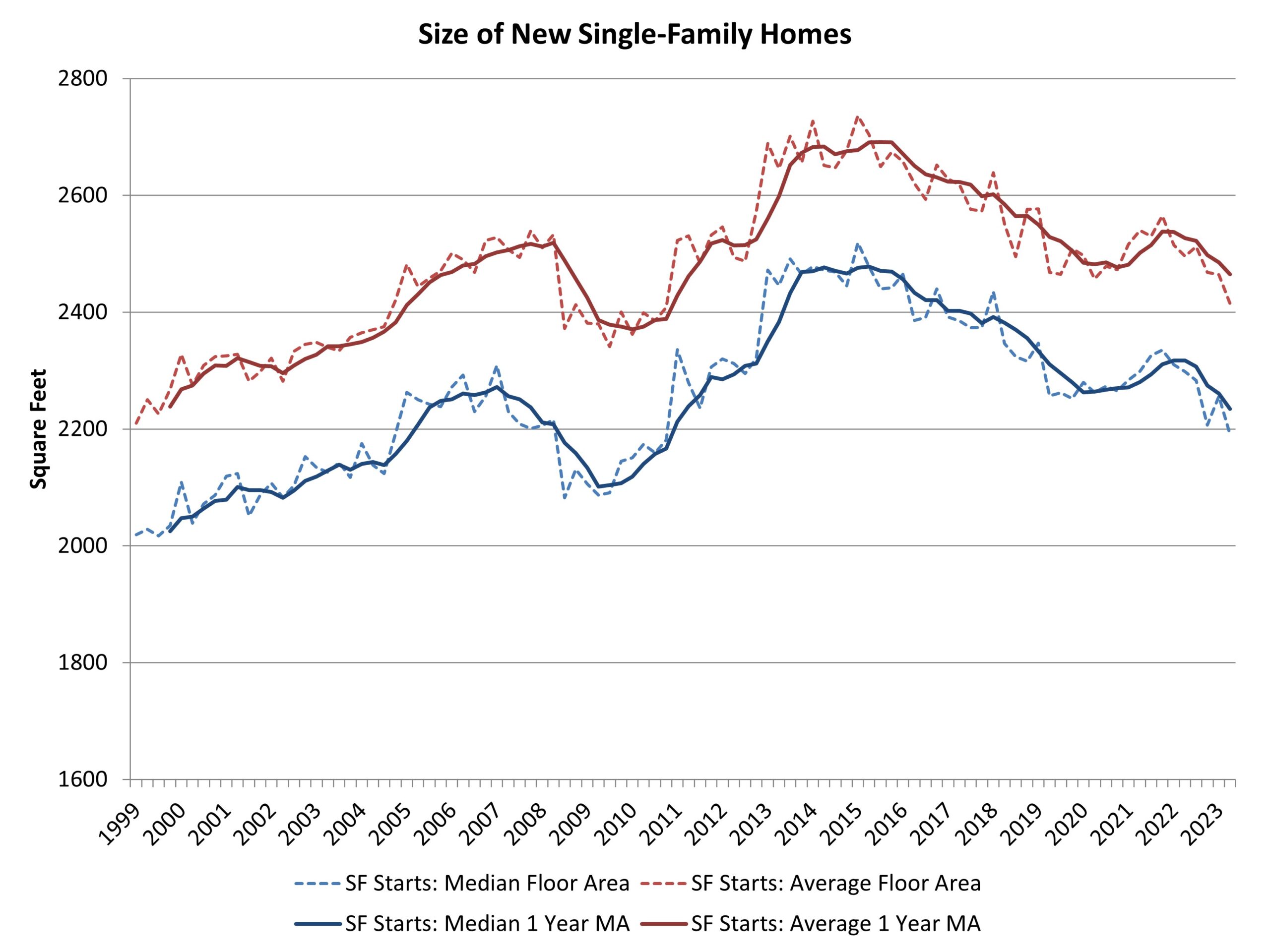An expected impact of the virus crisis is a need for more residential space, as people use homes for more purposes including work. Home size correspondingly increased in 2021 as interest rates reached historic lows. However, as interest rates increased in 2022, and housing affordability worsened, the demand for home size has trended lower.
According to second quarter 2023 data from the Census Quarterly Starts and Completions by Purpose and Design and NAHB analysis, median single-family square floor area declined to 2,191 square feet, the lowest reading since the end of 2010. Average (mean) square footage for new single-family homes fell to 2,415 square feet.

Since Great Recession lows (and on a one-year moving average basis), the average size of a new single-family home is now 3% higher at 2,465 square feet, while the median size is 6% higher at 2,234 square feet.
Home size rose from 2009 to 2015 as entry-level new construction lost market share. Home size declined between 2016 and 2020 as more starter homes were developed. After a brief increase during the post-covid building boom, home size is trending lower and will likely do so as housing affordability remains constrained.
Related


